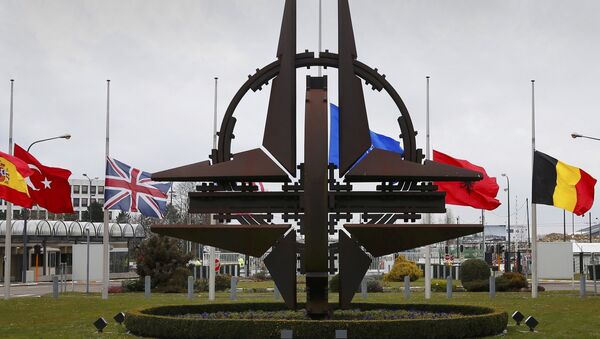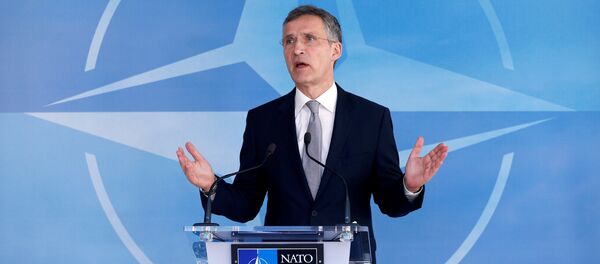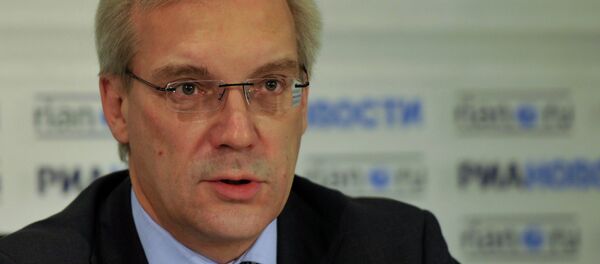During the talks, representatives of France and Germany pushed for rapprochement with Moscow and holding a session of the Russia-NATO Council during the July summit in Warsaw. Other NATO members were skeptical about the idea.
For example, one Eastern European diplomat told the Financial Times that talks with Russia were not to calm Moscow but to "reassure people in Brussels, people who worry too much about angering [Russian President Vladimir] Putin."
He added that Russia is just "playing games with NATO."
The "war of words" between Russia and NATO is getting increasingly "worrisome and bellicose," the article read.
NATO plans a major military buildup at its eastern flank, and Moscow has promised to respond. Earlier this week, British General Richard Shirreff warned that the prospect of a full war with Russia within a year.
This triggered a "bout of soul-searching within NATO" over the need to de-escalate the tensions.
"It’s wildly speculative and inflammatory, and I’m afraid from where I sit it does look as though it is related to maximising publicity," Hammond told Financial Times.
He added that dialogue is the "best way" to de-escalate tensions with Russia.
In Turn, NATO Secretary General Jens Stoltenberg said that the alliance is trying to avoid "misunderstandings, misinterpretation and miscalculations" in order to make sure "things are not spiraling out of control."
NATO has repeatedly claimed Russia is a threat, thus justifying their military buildup in Eastern Europe. The alliance plans to deploy four or five battalions in the Baltics and Poland. The decision is due to be made at the summit in Warsaw. Moscow has said that Russia is not interested in confrontation but ready to give an adequate response to the NATO strategy.



